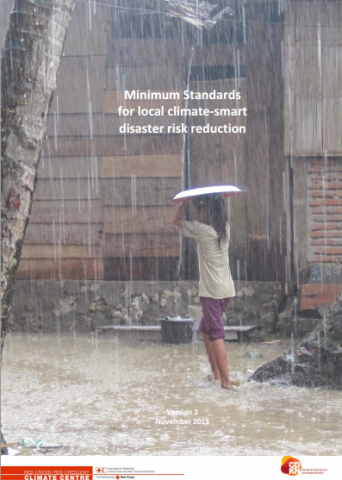Minimum Standards for local climate-smart disaster risk reduction


These standards were developed as a practical checklist to help local community leaders and disaster risk reduction (DRR) practitioners ensure their risk reduction efforts are climate-smart and contribute to climate change adaptation, meaning that these efforts consider the future risk patterns induced by a changing climate, often including rising uncertainties. They are not idealized solutions but rather practical approaches to implement DRR activities in a way that is achievable by communities with relatively limited external support.
The minimum standards are presented in two tables. Each minimum standard is supported by practical ‘actions’ to guide implementation: (i) table 1 outlines minimum standards for implementation of climate-smart DRR activities at the community level; and (ii) table 2 outlines minimum standards for national and provincial civil society organizations – or relevant local government authorities – to support communities implement climate-smart DRR activities.
